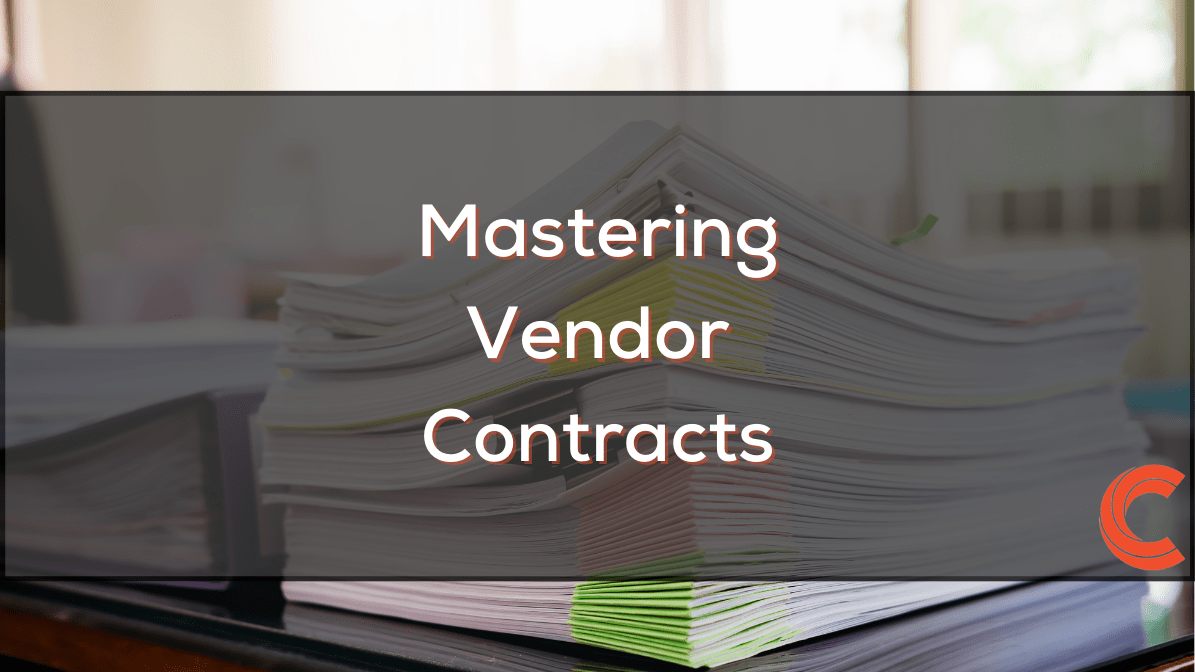In the complex landscape of business operations, vendor relationships play a pivotal role in the success of an enterprise. Mastering the art of vendor contracts is not only a strategic move but a crucial aspect of effective vendor management. This guide provides invaluable insights into the world of vendor contracts, offering tips and considerations for businesses seeking to enhance their vendor management practices and foster successful partnerships.
1. Understanding the Significance of Vendor Contracts
Central to Vendor Management:
- Vendor contracts serve as the foundation for defining the terms, expectations, and responsibilities of both parties involved in a vendor relationship.
- A well-crafted contract provides clarity, reduces uncertainties, and establishes a framework for a successful partnership.
2. Key Considerations for Effective Vendor Contracts
Clear Scope of Work:
- Define the scope of work comprehensively to avoid misunderstandings. Clearly outline deliverables, timelines, and performance expectations.
Pricing and Payment Terms:
- Clearly state pricing structures and payment terms to ensure financial transparency. Address issues such as discounts, penalties, and invoicing procedures.
Service Level Agreements (SLAs):
- Incorporate SLAs to establish measurable performance metrics. This ensures that both parties have a clear understanding of service expectations and quality standards.
Risk Mitigation:
- Include provisions for risk mitigation, such as indemnification clauses, to allocate responsibilities and liabilities in case of unforeseen events.
Termination and Exit Strategies:
- Define conditions under which either party can terminate the contract. Establish clear exit strategies to manage the conclusion of the vendor relationship smoothly.
3. Negotiation Strategies for Favorable Vendor Contracts
Know Your Requirements:
- Clearly articulate your business requirements and priorities before entering negotiations. This empowers you to negotiate from a position of strength.
Flexibility and Collaboration:
- Foster a collaborative negotiation environment. Be open to compromise and seek solutions that benefit both parties.
Legal Review:
- Engage legal professionals to review and assist in negotiating contracts. Legal expertise ensures that the contract aligns with legal standards and protects your interests.
4. Implementing Vendor Contracts Successfully
Communication and Onboarding:
- Establish open lines of communication from the onset. Facilitate a smooth onboarding process to integrate the vendor into your business operations seamlessly.
Regular Performance Reviews:
- Conduct regular performance reviews to ensure that the vendor is meeting contractual obligations. Address concerns promptly and collaboratively.
Continuous Improvement:
- Foster a culture of continuous improvement. Encourage feedback from both parties and use it to refine processes and enhance the overall partnership.
5. Technology Integration for Streamlined Vendor Management
Vendor Management Systems (VMS):
- Explore the use of Vendor Management Systems to automate and streamline the vendor management process, including contract management, performance tracking, and communication.
Data Security:
- Address data security and privacy considerations in the contract. Clearly outline the measures both parties will take to protect sensitive information.
6. Building Long-Term, Mutually Beneficial Relationships
Cultivate Trust and Transparency:
- Trust is the cornerstone of successful vendor relationships. Cultivate trust through transparency, honesty, and consistent communication.
Incentive Structures:
- Consider incorporating incentive structures into contracts to motivate vendors to exceed performance expectations and contribute to the success of your business.
Conclusion: Elevating Vendor Management Through Effective Contracts
Mastering vendor contracts is an essential skill for businesses aiming to optimize vendor relationships and drive overall success. By prioritizing clear communication, robust negotiation strategies, and a commitment to continuous improvement, businesses can cultivate long-term, mutually beneficial partnerships. For personalized guidance on vendor contracts and vendor management best practices, contact Carbon Law Group. Our legal professionals specialize in contract law, ensuring that your vendor relationships are not only strategically managed but legally sound. Elevate your vendor management game through effective contracts—where success meets collaboration.





